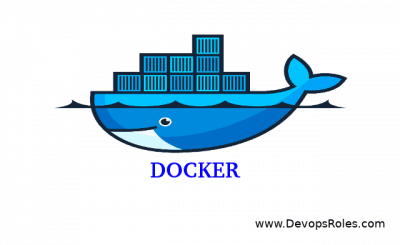Table of Contents
Introduction
In the fast-evolving world of software development, organizations are increasingly adopting DevOps practices to streamline workflows and deliver value faster. But how do you measure the effectiveness of your DevOps strategy? This is where DevOps KPIs (Key Performance Indicators) come into play. These metrics provide invaluable insights into the health and efficiency of your processes, enabling continuous improvement.
This article explores the essential DevOps KPIs, why they matter, and how to use them effectively. By the end, you’ll understand how to track and leverage these KPIs to drive success in your DevOps journey.
Why DevOps KPIs Matter
The Role of KPIs in DevOps
KPIs serve as measurable values that indicate how well your team achieves its objectives. In a DevOps context, these metrics:
- Promote alignment between development and operations.
- Highlight bottlenecks in the pipeline.
- Enable data-driven decision-making for process optimization.
- Facilitate continuous improvement by tracking progress over time.
Benefits of Monitoring DevOps KPIs
- Improved collaboration across teams.
- Faster time-to-market for software releases.
- Higher reliability and quality of deployed applications.
- Enhanced customer satisfaction.
Essential DevOps KPIs
Top DevOps Metrics to Track
To gauge the effectiveness of your DevOps implementation, focus on these critical KPIs:
Deployment Frequency
Definition: Measures how often your team deploys code to production.
- Why it matters: Indicates the agility and responsiveness of your development process.
- Goal: Strive for frequent and smaller deployments to reduce risks.
Lead Time for Changes
Definition: Time taken from committing code to deploying it into production.
- Why it matters: Reflects the efficiency of your pipeline and the ability to respond to business needs.
- Goal: Minimize lead time to achieve faster feedback loops.
Mean Time to Recovery (MTTR)
Definition: The average time to recover from failures in production.
- Why it matters: Demonstrates the reliability and resilience of your system.
- Goal: Aim for rapid recovery to minimize downtime.
Change Failure Rate
Definition: Percentage of changes that result in failures requiring remediation.
- Why it matters: Highlights the quality and reliability of your releases.
- Goal: Keep failure rates low while maintaining high velocity.
Using DevOps KPIs Effectively
Best Practices for Tracking DevOps KPIs
- Align KPIs with Business Goals
Ensure KPIs reflect organizational priorities, such as customer satisfaction or cost reduction.
- Use Automation Tools
Leverage CI/CD platforms, monitoring tools, and dashboards to automate KPI tracking.
- Establish Baselines
Define a starting point to measure improvements over time.
- Focus on Continuous Improvement
Use KPI insights to identify weaknesses and iterate on processes.
Common Pitfalls to Avoid
- Overemphasizing metrics without context.
- Ignoring team-specific nuances.
- Failing to act on insights.
Examples of DevOps KPIs in Action
Real-World Scenarios
Scenario 1: Accelerating Deployment Frequency
- Initial state: Deployments occurred bi-weekly.
- Action: Introduced CI/CD pipelines and automated testing.
- Outcome: Achieved daily deployments, reducing time-to-market.
Scenario 2: Reducing MTTR
- Initial state: Average recovery time was 6 hours.
- Action: Implemented robust monitoring and on-call incident management.
- Outcome: Reduced MTTR to 45 minutes.
FAQ
Frequently Asked Questions
Q1: What are DevOps KPIs?
DevOps KPIs are measurable metrics that assess the effectiveness and efficiency of DevOps practices in delivering high-quality software.
Q2: How do I choose the right KPIs?
Select KPIs that align with your organizational goals and reflect key aspects of your DevOps workflow.
Q3: Can DevOps KPIs improve team collaboration?
Yes, tracking and sharing KPIs foster transparency and accountability, enhancing collaboration across teams.

External Links
- Google Cloud DevOps Research and Assessment (DORA)
- Continuous Delivery Foundation
- Site Reliability Engineering (SRE) Principles
Conclusion
DevOps KPIs are indispensable for organizations striving to optimize their software delivery processes. By tracking metrics like deployment frequency, lead time, MTTR, and change failure rate, you can identify opportunities for improvement and drive continuous innovation. Start measuring your DevOps performance today and watch your team achieve new heights of success. Thank you for reading the DevopsRoles page!


